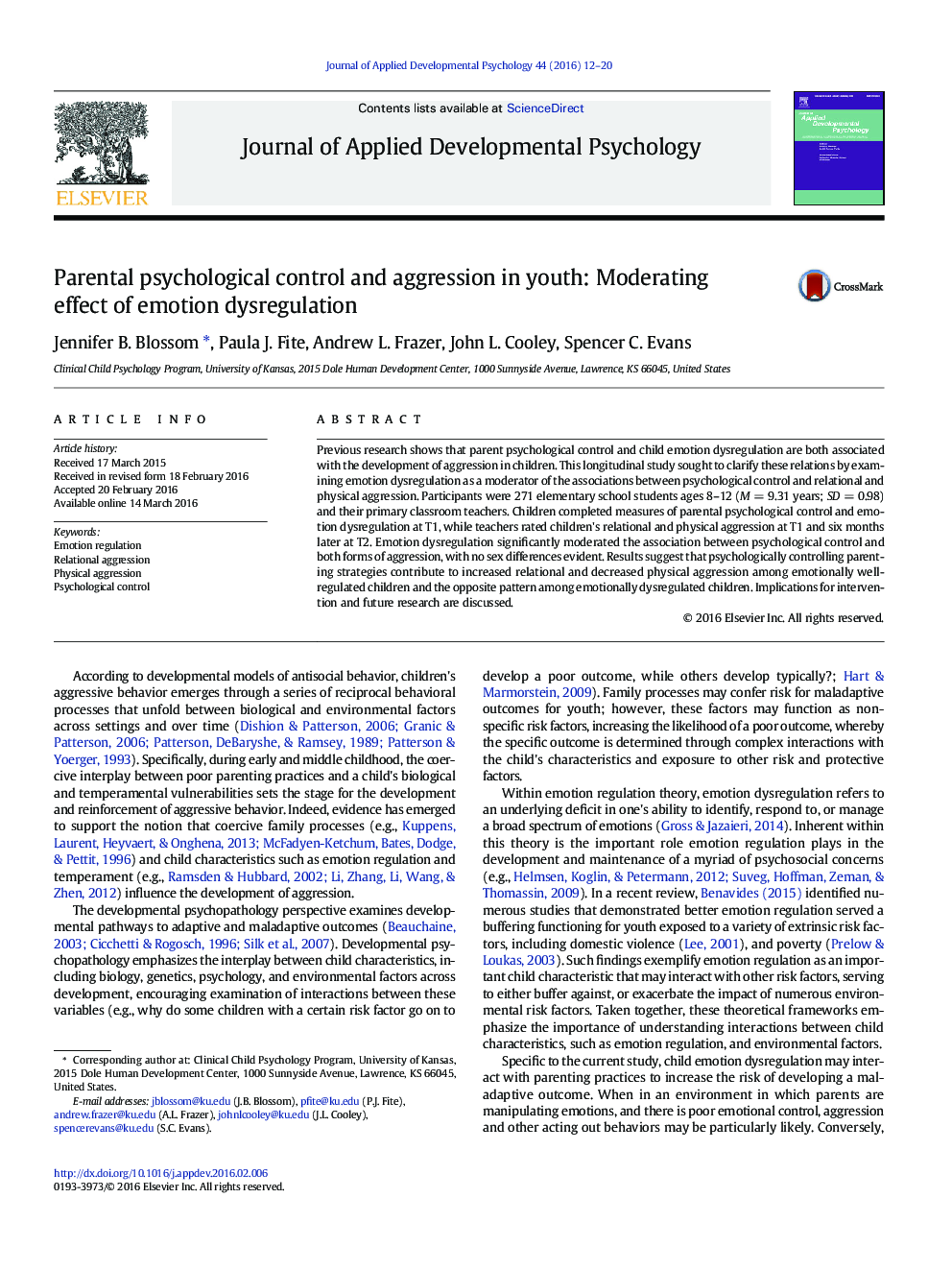| Article ID | Journal | Published Year | Pages | File Type |
|---|---|---|---|---|
| 359615 | Journal of Applied Developmental Psychology | 2016 | 9 Pages |
•Emotion dysregulation moderated the link between psychological control and two forms of aggression in a 3rd-5th grade sample.•High levels of psychological control combined with high level of dysregulation predicted increases in physical aggression.•Low levels of dysregulation combined with high levels of psychological control predicted increases in relational aggression.•Results suggest that each form of aggression may require different intervention strategies which are discussed in detail.
Previous research shows that parent psychological control and child emotion dysregulation are both associated with the development of aggression in children. This longitudinal study sought to clarify these relations by examining emotion dysregulation as a moderator of the associations between psychological control and relational and physical aggression. Participants were 271 elementary school students ages 8–12 (M = 9.31 years; SD = 0.98) and their primary classroom teachers. Children completed measures of parental psychological control and emotion dysregulation at T1, while teachers rated children's relational and physical aggression at T1 and six months later at T2. Emotion dysregulation significantly moderated the association between psychological control and both forms of aggression, with no sex differences evident. Results suggest that psychologically controlling parenting strategies contribute to increased relational and decreased physical aggression among emotionally well-regulated children and the opposite pattern among emotionally dysregulated children. Implications for intervention and future research are discussed.
